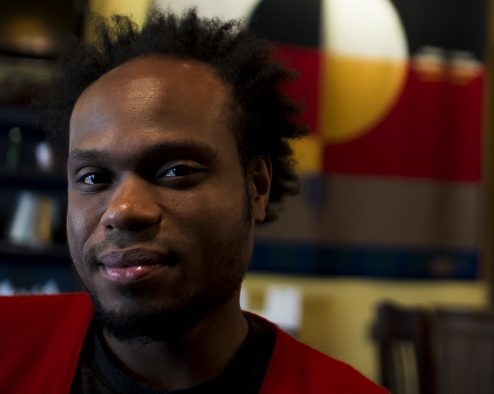Alumna Margaree Little (poetry, ’12) is a recipient of a 2013 Writers’ Award from The Rona Jaffe Foundation:
“In recognition of the special contributions women writers make to our culture and society, The Rona Jaffe Foundation is giving its nineteenth annual Writers’ Awards under a program that identifies and supports women writers of exceptional talent. The emphasis is on those in the early stages of their writing careers. This unique program offers grants to writers of fiction, creative nonfiction, and poetry to make writing time available and provide assistance for such specific purposes as child care, research and related travel costs.
Six emerging women writers have been singled out for excellence by the Foundation and will receive awards of $30,000 each.”
Molly is the seventh alumna of the MFA Program for Writers at Warren Wilson College to receive this honor since the Writers’ Awards were established in 1995. Previous recipients include Karen Whalley (poetry, ’00) and Constance Merritt (poetry, ’00) in 2001, Adrian Blevins (poetry, ’02) in 2002, Joanne Dominique Dwyer (poetry, ’09) in 2008, Heidy Steidlmayer (poetry, ’00) in 2009, and Laura Newbern (poetry, ’94) in 2010.
In addition, five Warren Wilson MFA faculty have been honored with this award: Mary Szybist in 1996, Lan Samantha Chang in 1998, Gabrielle Calvocoressi in 2002, Dana Levin in 2004, and Jennifer Grotz in 2007.
 Margaree Little received her B.A. from Brown University in 2009 and her M.F.A. from Warren Wilson College in 2012. Her poems have appeared or are forthcoming in The Southern Review, Beloit Poetry Journal, New England Review, The Missouri Review, and American Poetry Review. She was a Peter Taylor Fellow at The Kenyon ReviewWriters Workshop in 2013. She teaches writing at Pima Community College and tutors at Pima County Public Library in Tucson. In 2010, while working for a humanitarian aid organization on the U.S.-Mexico border, she found the remains of an unidentified man; her first collection of poems, Rest, came out of this experience and attempts to explore it from a variety of perspectives. Her nominator writes, “Margaree’s insistence on honoring this one specific death speaks to her great soul, but so does the lyric intensity, deft craft, and encompassing reach with which she contemplates this lost life—the fact and unknowns of it, its presence and what is missing—as an emblem.” Ms. Little is also beginning work on a second collection. “I plan to write a series of poems exploring the relationship between two sisters and other aspects of childhood, as well as the landscape—the woods and coastline of southern Rhode Island—in which these experiences were shaped.” Her Writer’s Award will allow her to take a one-year leave from her work at the library to devote more time to her poems. She lives in Tucson, Arizona.
Margaree Little received her B.A. from Brown University in 2009 and her M.F.A. from Warren Wilson College in 2012. Her poems have appeared or are forthcoming in The Southern Review, Beloit Poetry Journal, New England Review, The Missouri Review, and American Poetry Review. She was a Peter Taylor Fellow at The Kenyon ReviewWriters Workshop in 2013. She teaches writing at Pima Community College and tutors at Pima County Public Library in Tucson. In 2010, while working for a humanitarian aid organization on the U.S.-Mexico border, she found the remains of an unidentified man; her first collection of poems, Rest, came out of this experience and attempts to explore it from a variety of perspectives. Her nominator writes, “Margaree’s insistence on honoring this one specific death speaks to her great soul, but so does the lyric intensity, deft craft, and encompassing reach with which she contemplates this lost life—the fact and unknowns of it, its presence and what is missing—as an emblem.” Ms. Little is also beginning work on a second collection. “I plan to write a series of poems exploring the relationship between two sisters and other aspects of childhood, as well as the landscape—the woods and coastline of southern Rhode Island—in which these experiences were shaped.” Her Writer’s Award will allow her to take a one-year leave from her work at the library to devote more time to her poems. She lives in Tucson, Arizona.
On Friday, September 20, 2013 at 7 p.m., the winners will read in New York University’s Creative Writing Program Reading Series at the Vernon Writers House (58 West 10th Street).
Read more about the 2013 Award Winners online.





